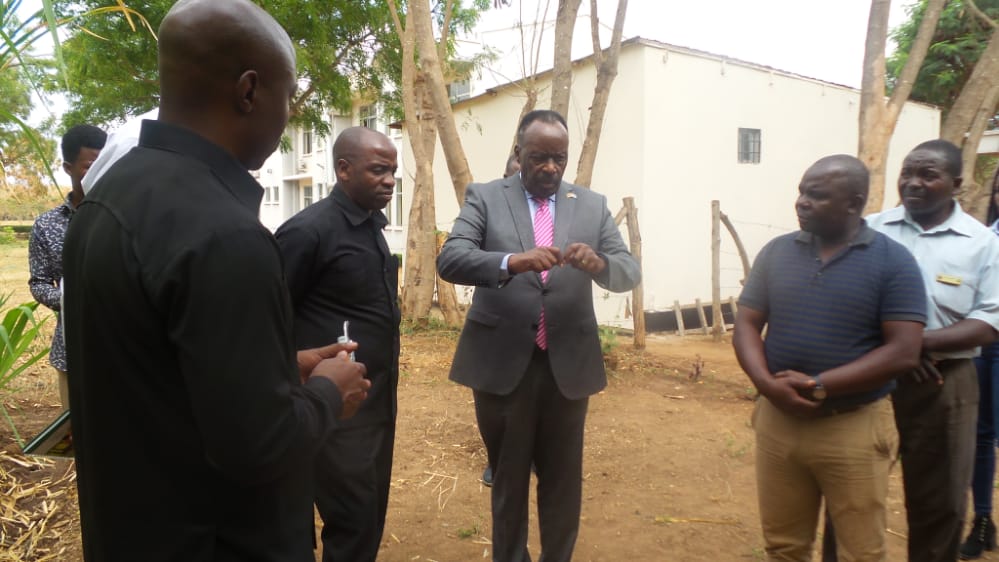On Friday, September 23, 2022, the High Commissioner of the Republic of Uganda to the United Republic of Tanzania, retired Colonel Fred Mwesigye, paid a one-day visit to Sokoine University of Agriculture (SUA) to witness firsthand the wonder of JUNCAO grass, a technology that can be used to solve livestock feed shortages and prevent conflict between farmers and pastoralists.

Ambassador Mwesigye and his delegation were welcomed by various university leaders, including Dr. Beda Mwang'onde, who is the Head of the Department of Biosciences at the College of Natural and Applied Sciences, and Dr. Elly Ligate, Senior Lecturer and project leader researching JUNCAO grasses at SUA.
After the visit, Ambassador Mwesigye stated that his country will continue to cooperate with Tanzania in various areas and that they will look into how to introduce and transfer this technology to Uganda with the goal of resolving conflicts between farmers and pastoralists.
"I am grateful to the management of this university for inviting me to come and witness the wonder of JUNCAO grass; I believe we can also use this technology for the benefit of our pastoralists and farmers because we also rear cattle using modern methods unlike in the past, so we will work with you to ensure that we introduce this technology to many Uganda farmers," Ambassador Mwesigye remarked.

Dr. Elly Ligate, for his part, stated that they have already reached Uganda, but their desire is to reach large areas and other neighboring countries where this technology will be needed. In Tanzania, experts from SUA have collaborated with the Ministry of Livestock and Fisheries to test the production of these grasses for approximately 54 farmers in more than ten districts, which are Kilindi, Handeni, Bumbuli, Geita, Bukoba, Kagera, Mbarali, Dodoma, Kigamboni, Pwani, Morogoro, and Kilosa.
“This visit of the Ugandan ambassador to Tanzania is very important because it broadens the scope of dissemination of the results of this research which we believe is the answers in the livestock sector because the pasture challenge is not only in Tanzania, but East Africa and Africa in general" Dr. Ligate stated
Furthermore, he encouraged farmers and pastoralists to grow JUNCAO grass as it is an opportunity they won't regret, because these grasses can be farmed at any time of the year and they can tolerate desert or warm weather conditions. This is the good news particularly at these times where many areas are struggling with the results of climate change such as drought, soil erosion, etc.
Dr. Beda Mwang'onde, for his part, stated that due to the increase in animals and the shortage of pastures, JUNCAO grass will be the solution and will help prevent nomadic farming, which forces many farmers' to abandon their families and their children fail to attend school.
He went on to claim that JUNCAO grass has been researched for more than 20 years and it is the proven solution to animal food shortages, taking care of areas affected by climate changes and they can also be used to grow mushrooms.
JUNCAO grass technology was developed by China's Fujian Agriculture and Forestry University. Sokoine University of Agriculture experts are continuing to research the technology for the Tanzanian environment.
If you have any questions about the JUNCAO grass, please contact SUA researchers, Dr. Beda Mwangonde at bmwangonde@sua.ac.tz or Dr. Elly Ligate at jligate@sua.ac.tz
Read also
Majani ya JUNCAO kuwa suluhisho la malisho ya mifugo




